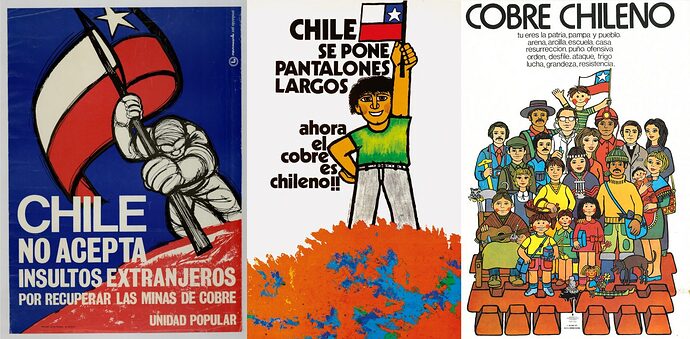This appeared today, in a BBC obituary piece on Henry Kissinger.
The election of the Marxist Salvador Allende as president of Chile, however, did trouble the United States. The new government was pro-Cuban and nationalised American companies.
As usual there’s a lot more to the story than the BBC says.
The reason that the US, specifically Kissinger, was “troubled” was that not only did Allende’s government expropriate those companies, but rather than paying compensation, Chile alleged that the mining Royalties paid in the past had been inadequate, recalculated them, and presented a bill for the shortfall.
Chile seized those mines and also expected the miners to pay compensation. This shabby idea was cooked up and approved virtually unanimously in Congress, pandering to the Cold War populist pro-communist sentiments of pre-1973 Chile. Even the Bonds that Chile had issued to acquire majority ownership in those mines were worthless, as Chile didn’t have the reserves to cover them.
Even back then, Chilean politicians couldn’t run the country properly.
At the time, Kissinger said that the US governmental opposition to this move, (which had bad consequences for Chile’s finances), was that although Chile was relatively unimportant, if bigger markets followed suit, the results would have damaged the US economy.
This site has the history of the whole sorry saga:
■ Abstract
In July 1971, the Chilean government nationalized the copper industry without compensating U.S.-based corporations that were, until then, co-owners of the mines. After nationalization, the coercive measures and economic strangulation the United States government was already applying against the Salvador Allende government became more acute, leading the Chilean government to seek a negotiated arrangement that would bring economic relief from the U.S.-imposed blockade. Chile offered to negotiate compensations, linked to the solution of other bilateral issues, in circumstances that it had no intention of making such concessions, bound by domestic politics and constitutional restrictions. There were four rounds of confidential bilateral conversations in 1972-1973 that ended in a total impasse. Both sides became entrapped by their own arguments, based on a fierce defense of principles, divergent interpretations of international law and disagreements on the negotiation agenda.
